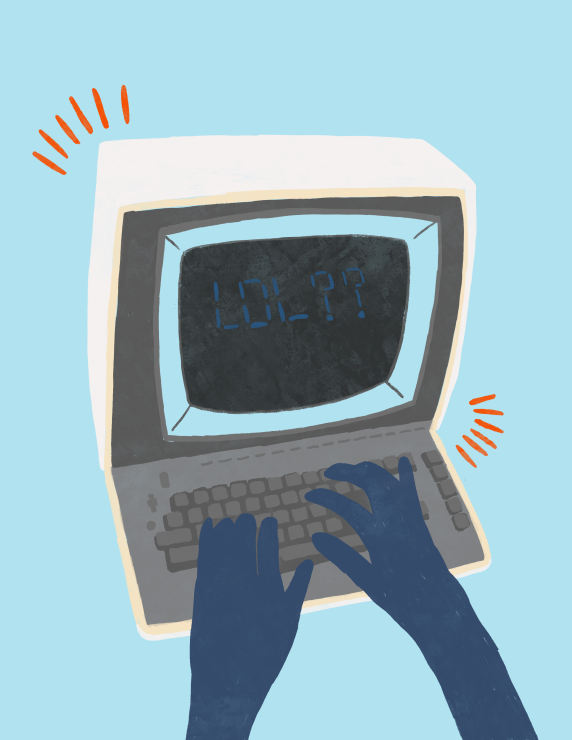The cultural impact of impact font

Illustration by Chloe Latour.
I consider myself to be cool, hip, and up-to-date with meme culture and current trends, but in the last few months I’ve even started to feel like an old man when it comes to some of the language people are using online.
Meme culture has thoroughly permeated the mainstream and our society as a whole. It’s surprising that UVic doesn’t offer many classes on memetics, the study of memes. Memes have changed our attention spans, our senses of humour, and how we consume media. Donald Trump won the 2016 election at least partially because of a frog meme.
But what is a meme anyway? Is it a funny cat picture with bold impact font over it? Is it the fast food chain Wendy’s releasing an official rap album? Or is it your little brother doing a Fortnite dance? Short answer: everything is a meme.
The British scientist Richard Dawkins coined the term back in the ’70s to describe how ideas change and grow. A meme is any piece of cultural information transmitted between people.
The way memes have changed our vocabulary and affected how we communicate with one another is something that I haven’t seen talked about enough.
Slang has been a part of the internet since its inception. Saving time with keyboard shortcuts created the widespread use of LOL and OMG, which have now become a regular part of speech for many. With the rise of emojis, it can feel like we’re regressing back to ancient Egyptian times, communicating with hieroglyphs instead of words.
Just as acronyms and emojis became popular to fit in with technology changing, internet vocabulary adapted to fit in with language changing, including censorship. I hadn’t thought about this until I heard someone use the phrase “unalive” in an actual conversation.
Unalive is used to replace the word “kill” online. This term came about because many social media platforms demonetize or censor content that discusses death, and specifically suicide. By now, I’ve heard many people use this term even though they’re not on the internet or being censored.
If you’ve read George Orwell’s 1984, you probably know why I’m bringing this up. In the novel, words are removed and replaced with opposites of other words. For example, warm becomes “uncold.” This was done not only to simplify language, but to restrict the way that people could put thoughts into words.
Now, I’m not trying to become a meme myself and say that the society we live in is literally 1984, but I do think it’s worth examining how something as simple as trying to bypass censorship can turn into people using brand new language in their everyday lives.
All of this got me interested in how much my own language is based on meme culture; the results shocked me. Once I started to really think about it, I realized that a good portion of the vocabulary I use on a day-to-day basis stems from stupid internet jokes.
I recommend you do this exercise: spend a day keeping track of every phrase or word you use that originated on the internet. If you’re unsure about one, look it up. There were many that I had no idea came from memes.
Here is a list of internet slang words I found myself using in regular conversation: cringe, based, sus, rizz, lit, pog, bet, LOL, REE, birb, chungus, mewing, and looksmaxxing. After writing that out, I honestly feel like the internet has irreparably rotted my brain. I need to turn off my phone and read a book.
Rizz, Skibidi toilets, fanum tax, gyatt — what does it all mean? Gibberish to one person can be easily deciphered by someone from another generation.
The next time you’re with a younger sibling or cousin, ask them about what internet slang they like. No matter how “with it” you think you are, you’re guaranteed that they’ll say something that will leave you scratching your head.
Having an expansive vocabulary and being able to articulate thoughtfully is an important skill to have not only for school, but for communicating with others in everyday life. It’s worth taking the time to examine what influences your words.
What’s your favourite piece of internet slang?







